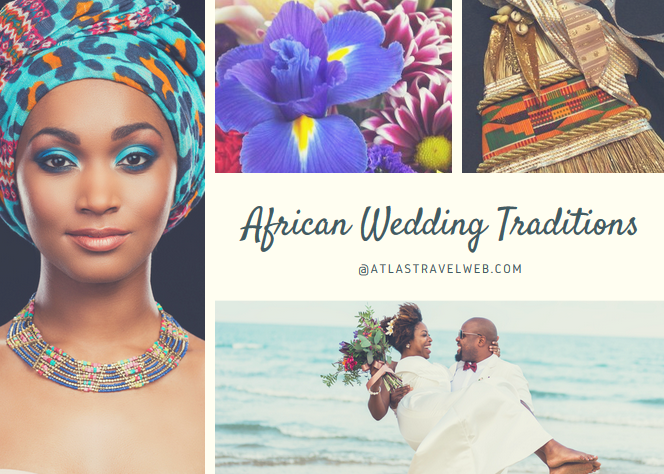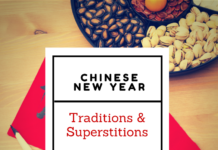We specialize in wedding cruises, as well as destinations weddings. You will have a wedding planner and expert travel coordinator that will work with you from start to finish. Our focus in this blog is to discuss how you can incorporate African wedding traditions as part of a cruise or resort wedding package. From the dress, to the décor and menus, just about anything can be done, as long as it is planned in advance. We have working knowledge of the traditions, and will make sure they are observed & included in the manner in which you want to make your wedding memorable.
Did you know that several of the wedding traditions practiced today by Westerners originated in Africa? African wedding traditions and rituals are rich in history and symbolism, with many of these traditions being adapted and incorporated into modern wedding ceremonies. Of course the traditions can vary from one region of Africa to another.
Here are some of the traditions that can be incorporated for a Traditional African Wedding on a cruise ship or resort destination wedding.
Jumping the Broom
In Ghanaian culture, brooms were symbolic for sweeping away past wrongs and evil spirits. It is believed that the African wedding tradition of jumping the broom originated in Ghana and was made popular with African Americans during the days of slavery. Slaves were forbidden to marry, but many couples would hold secret ceremonies and jump over a broom to solidify their wedding nuptials and “sweep away” their single lives. Even today, it is common for modern brides and grooms to incorporate handmade decorative brooms into their wedding ceremony and as a keepsake long after the wedding. It will be no problem to bring a decorated broom onto the cruise ship to include as part of your ceremony.
Crossing Sticks
The crossing sticks wedding ritual is when the bride and groom join two wooden sticks together by crossing them. This tradition symbolizes the strength in joining together to face life together in unity. A great way to incorporate this African wedding tradition into modern-day nuptials is to select sticks or branches from a place special to the couple and incorporate them into the ceremony. Use them to symbolize a strong beginning as a married couple. Sticks are branches that fit into your suitcase should not be a problem to take onto the cruise ship, just make sure they are packed carefully to avoid any damage to them or other items in your suitcase. Larger sticks that cannot be packed would require special permission to bring onto the ship. You Atlas group coordinator can assist you with this process.
Libation Ceremony
Also referred to as tambiko, the West African libation ceremony involves pouring alcohol or holy water onto the ground in an act to honor those who have passed. The liquids are poured out in the cardinal directions while elder family members recite prayers for the married couple to gain wisdom and guidance from their ancestral spirits. Today, you can incorporate this African wedding ritual into your wedding by having elderly family members offer their blessings during the ceremony. This particular tradition can be more complicated to include. You won’t be able to pour alcohol into the ground, but you can modify and pour into a large bowl. It would require advanced planning to gain permission from the cruise for a Libation Ceremony.
Tying the Knot
The well-known phrase “tying the knot” gets its roots from the African wedding tradition of the same name. The phrase comes from the binding ritual where the bride and groom have their wrists literally tied together with a decorative rope while reciting their vows to each other. Many modern couples include this wedding tradition in their wedding ceremonies to symbolize their union. Tying the knot can easily be incorporated into an African wedding ceremony on a cruise ship.
Kente Cloth
The attire worn during most traditional African wedding ceremonies is made from elaborately patterned fabric called kente cloth. This colorful handwoven fabric has symbolic meaning for the Ashanti people of Ghana: its red color standing for the blood shed and sacrifice of its people, gold for the wealth and prosperity, and green for life. Kente cloth is associated with royalty and special occasions, so it is fitting that the bride and groom wear it on their big day. The bride wears a wrap skirt called an iro made of kente cloth, as well as a matching buba or blouse, an iborum or shawl, and matching headpiece called a gele. The groom traditionally wears slacks made of kente cloth, called sokoto, as well as a bubba, and matching jacket called an agbada and hat called a fila.
Cowrie Shells
Another African wedding tradition is the use of cowrie shells during the wedding ceremony. Cowrie shells were once a form of currency in parts of Africa, and they were also traditionally strung together and used to bind the couple’s wrists during the “tying the knot” wedding tradition. A clever way to incorporate cowrie shells into your modern wedding is by using them in the bride’s veil or headpiece, in the bridal bouquet, or even using a cowrie shell design theme on your wedding invitations.
Tasting the Four Elements
The African wedding ritual known as tasting the four elements originated among the Yorùbá people of Nigeria. This tradition involves the bride and groom sampling four distinct flavors: cayenne for spice, lemon for sour, vinegar for bitter and honey for sweet. Tasting the four elements symbolizes the couple’s commitment to stay together through good times and bad, sickness and health, the bitter and the sweet times in life. For a modern nod to this African wedding tradition, you can incorporate these flavors into dishes served at your wedding reception. Let us know if you want the traditional or modern version of the elements and we can ensure it is done the way you want it.
Kola Nuts
The kola nut comes from the rainforests of Western Africa and is thought to have countless medicinal benefits. The highly caffeinated fruit was included in the original recipe for Coca-Cola, and thanks to its healing properties became a symbol of unity and strength in some African tribes. The exchange of a kola nut symbolizes a couple’s willingness to help heal and nurture each other. Cruise line can ban guests from bringing food items onto the ship, so again your group coordinator would work closely with you on this to ensure you won’t have any issues.
Knocking the Door
The pre-wedding tradition of knocking the door originated in Ghana. This ritual is the equivalent of asking the bride’s family for permission to marry. Also referred to as kookoo ko in Ghanaian, the tradition of knocking the door is when the groom and his family come bearing gifts such as kola nuts or alcohol and knock on the door of the family of the bride-to-be. If the family accepts the groom’s proposal, both families provide their blessing and celebrations begin. Modern options can include planning a gathering where both families can meet and the groom and bride announce their intentions to marry. This is typically done prior to the wedding, however we could arrange a party in a private venue on the first night to have a symbolic “knocking of the door” ceremony and then perhaps a cocktail hour or dinner for the group.
Cutting the Cord
This symbolic tradition involves the eldest sibling from the bride and groom’s families cutting a cord to represent breaking the ties between their families and creating their new family bond. The cords can be made of any decorative cloth, such as kente cloth. Purple and gold are popular colors for African weddings because they symbolize royalty. A modern alternative would be to use the cord fabric as part of the wedding decor or accessories.
We pride ourselves in being able to plan both your wedding and travel plans from start to finish. Learn more about planning a large group cruise.








